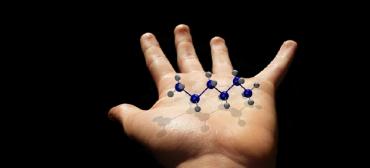Hypoglycemia in the Newborn
What is hypoglycemia in the newborn?
Hypoglycemia is a condition in which the amount of blood glucose (sugar) in the blood is lower than normal.
Who is affected by hypoglycemia in the newborn?
Approximately one to three out of 1,000 newborn babies have hypoglycemia. Babies who are more likely to develop hypoglycemia include:
-
Babies born to diabetic mothers may develop hypoglycemia after delivery when the source of glucose (the mother's blood) is gone and the baby's insulin production metabolizes the existing glucose.
-
Small for gestational age or growth-restricted babies may have too few glycogen stores.
-
Premature babies, especially those with low birthweights, who often have limited glycogen stores (sugar stored in the liver) or an immature liver function.
What causes hypoglycemia in the newborn?
Hypoglycemia may be caused by conditions that:
-
Lower the amount of glucose in the bloodstream.
-
Prevent or lessen storage of glucose.
-
Use up glycogen stores (sugar stored in the liver).
-
Inhibit the use of glucose by the body.
Many different conditions may be associated with hypoglycemia in the newborn, including the following:
-
Inadequate maternal nutrition in pregnancy
-
Excess insulin produced in a baby of a diabetic mother
-
Severe hemolytic disease of the newborn (incompatibility of blood types of mother and baby)
-
Birth defects and congenital metabolic diseases
-
Birth asphyxia
-
Cold stress (conditions that are too cold)
-
Liver disease
Why is hypoglycemia in the newborn a concern?
The brain depends on blood glucose as its main source of fuel. Too little glucose can impair the brain's ability to function. Severe or prolonged hypoglycemia may result in seizures and serious brain injury.
What are the symptoms of hypoglycemia in the newborn?
Symptoms of hypoglycemia may not be obvious in newborn babies. The following are the most common symptoms of hypoglycemia. However, each baby may experience symptoms differently. Symptoms may include:
-
Jitteriness
-
Cyanosis (blue coloring)
-
Apnea (stopping breathing)
-
Hypothermia (low body temperature)
-
Poor body tone
-
Poor feeding
-
Lethargy
-
Seizures
The symptoms of hypoglycemia may resemble other conditions or medical problems. Always consult your baby's doctor for a diagnosis.
How is hypoglycemia in the newborn diagnosed?
A simple blood test for blood glucose levels can diagnose hypoglycemia. Generally, a baby with low blood glucose levels will need treatment.
Treatment for hypoglycemia in the newborn
Specific treatment for hypoglycemia will be determined by your baby's doctor based on:
-
Your baby's gestational age, overall health, and medical history
-
Extent of the disease
-
Your baby's tolerance for specific medications, procedures, or therapies
-
Expectations for the course of the disease
-
Your opinion or preference
Treatment includes giving the baby a rapid-acting source of glucose. This may be as simple as giving a glucose and water mixture or formula as an early feeding. Or, the baby may need glucose given intravenously. The baby's blood glucose levels are closely monitored after treatment to see if the hypoglycemia occurs again.
Prevention of hypoglycemia in the newborn
There may not be any way to prevent hypoglycemia, only to watch carefully for the symptoms and treat as soon as possible. Mothers with diabetes with blood glucose levels in tight control can help minimize the amount of glucose that goes to the fetus.
Related Questions
Nephrology problem
- 3547 Days ago
- Diabetes
Complete thrombosis of right femoral artery
- 3550 Days ago
- Diabetes
Dr Vishnu Bhargava
- 3618 Days ago
- Diabetes
My sugar level is 135
- 4203 Days ago
- Diabetes
I m having type 2 DM with avg PPBS 217
- 3890 Days ago
- Diabetes
I have Diabetes
- 4759 Days ago
- Diabetes
Urine test
- 4135 Days ago
- Diabetes





















